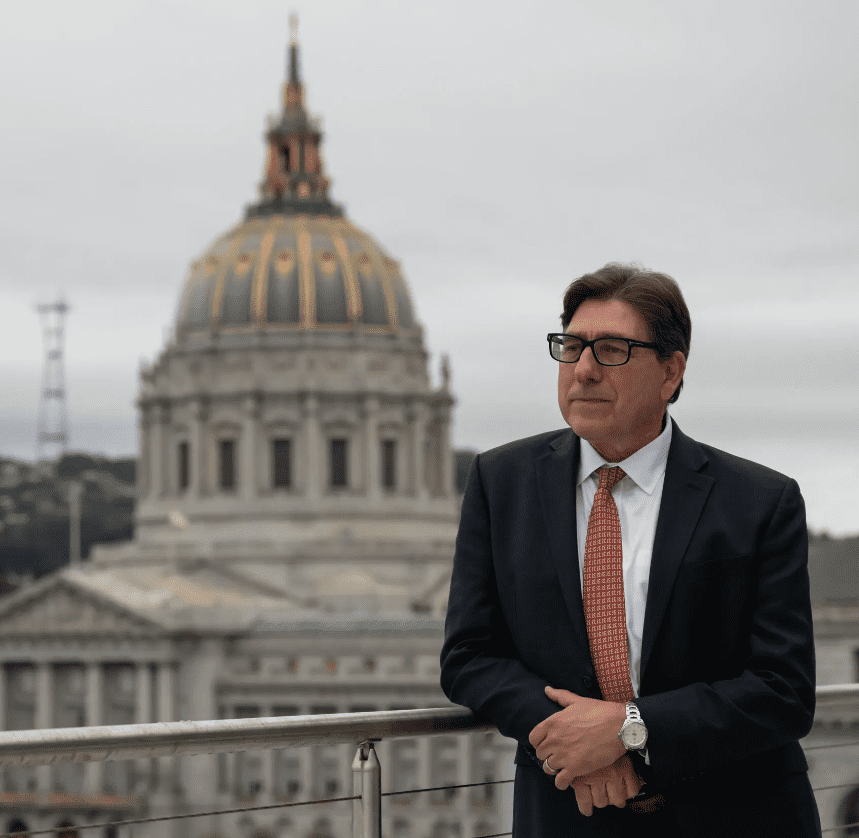Chancellor & Dean David Faigman: Board of Directors Votes on New Name for the College
 Dear UC Law SF Community,
Dear UC Law SF Community,
I write to offer an update on our path towards a new name for the College.
Today, the UC Law SF Board of Directors voted unanimously on a resolution to remove “Hastings” from our name in the California Education Code and replace it with San Francisco. This recommendation now heads to the California State Legislature to revise Assembly Bill 1936, which will amend provisions of the California Education Code to conform to the new name. If the recommendation is approved by both houses of the legislature, it will be sent to Governor Newsom for his signature and will become effective in January 2023. If all that happens, beginning in 2023, our great school will be known as University of California College of the Law, San Francisco or, for short, UC College of the Law, San Francisco, or shorter still, UC Law SF.
For those of you who are longstanding members of the UC Law SF community, you will know and appreciate a not-so-linear journey that began at the start of my deanship, one that I felt compelled to undertake to address in earnest the history of our namesake. It is a journey that I pursued with an open mind, considerable humility, and one that has brought with it powerful moments of learning and gratitude. The journey began in 2017 when I appointed the Hastings Legacy Review Committee to investigate further the history of the law school’s founder, Serranus Hastings, after learning of his involvement in mass killings of Yuki People in the Round Valley and Eden Valley region prior to his founding of the College. Since then, our College has established a foundational relationship with the Round Valley Indian Tribes (RVIT) and its Yuki Committee (the Yuki are also known as the Witukomno’m People), and worked on restorative justice measures, including opening an Indigenous Law Center, sponsoring students to offer pro bono legal assistance during the summers for organizations and tribal courts supporting California Native Americans, and co-curating a commemorative space in honor of the Yuki people on our campus. My Restorative Justice Advisory Board has continued to support me and College leaders in ongoing efforts.
The Board’s decision on the name is the result of an extensive process that considered the viewpoints of all of the law school’s constituencies, including students, staff, faculty, alumni, and the University of California Office of the President. It also included numerous consultative meetings with members of RVIT, their Yuki Committee, and others.
Between November 2021 and June 2022, the College hosted eight meetings and town halls and events that included students, staff, faculty, and alumni, where attendees were invited to ask questions and share their views regarding the name of the College. The College also received hundreds of emails and letters from both internal and external stakeholders. Of those received, 78% supported removing Hastings from the College’s name and 22% were against a name change. Of those supporting a name change, 67% supported a geographic name, 26% supported another name or failed to state a preference, and 7% supported a Yuki-language name. I want to thank everyone who shared their views, asked questions, and submitted recommendations.
Additionally, the Board of Directors heard directly from the public, and, most particularly, from RVIT and their Yuki Committee at its June 3rd meeting. The Board and its Consultation Committee met with representatives from RVIT and their Yuki Committee five times over the summer to consult on the name of the College and various restorative justice efforts. The RVIT Tribal Council supported removing the name Hastings but did not take a position on what the new name should be, and some members of the Yuki Committee advocated for a Yuki-language name. Other Yuki descendants had a range of views, including not changing the name or using a geographic designation. The committee also heard from the Ramaytush Ohlone, on whose ancestral land the College sits. We heard their strongly-held views that naming an institution on their ancestral land in the language of another tribe would create great offense.
I thank the Board of Directors for their engagement in considering all points of view on the name of the College, and I fully support their unanimous vote to change the school’s name to UC College of the Law, San Francisco. As the Board’s Consultative Committee’s report states, it best embodies the College’s core identity and is the overwhelming preference of students, staff, faculty, and alumni. The College is an integral part of the city in which it has resided for 144 years, and many of the College’s most famous graduates are uniquely tied to the city – including former Mayors Willie Brown and George Moscone, the late Justice Wiley Manuel, and current Vice President Kamala Harris. The name also aligns with the approach of the University of California and California State University systems, which name campuses after their geographic locations.
Though we are one step closer to renaming our law school, our work here is not done. I will continue to update you further on the activities in Sacramento to fully effectuate a name change. The College will continue to work on restorative justice measures and seek to maintain our collaborative relationship with the affected tribes. The Board of Directors has also indicated its openness to naming a prominent campus space, such as the library, with an Indigenous-language name, which is a recommendation that I also support.
I am excited about the pending name change, which comes at an exciting time in our law school’s history. The foundation of the College, the heart, the spirit, and the excellence will remain. Thank you for being part of this exciting and important chapter in our school’s history.
Best regards,
David
David L. Faigman
Chancellor and Dean
John F. Digardi Distinguished Professor of Law
University of California Hastings College of the Law
Media contact:
Liz Moore